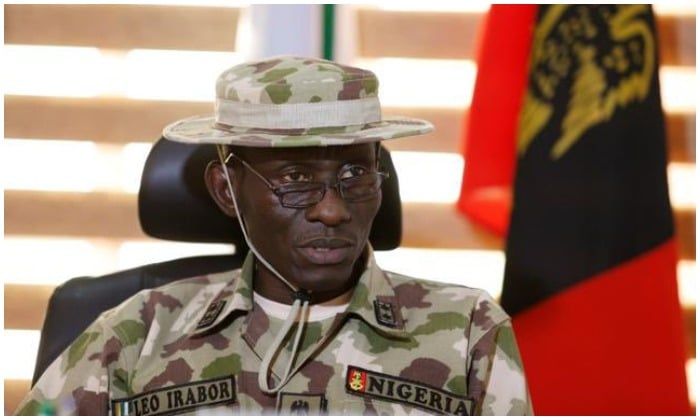A former Chief of Defence Staff (CDS), General Lucky Irabor, has emphasised the need for citizens to respect military officers, saying an insult to one in uniform, is an insult to the state.
The retired four-star general gave the charge in the wake of the incident involving the Minister of the Federal Capital Territory (FCT), Nyesom Wike, and a commissioned naval officer, Lieutenant Ahmad Yerima a few days ago in Abuja.
General Irabor delivered a keynote address yesterday during day two of the 21st All Nigeria Editors Conference (ANEC) with the theme: ‘Media, Terrorism and National Security: Addressing the Complexities’.
Reacting to the incident on the sidelines of his presentation at the conference, General Irabor maintained that the uniform worn by an officer is a symbol of the authority of the nation. “It symbolises the power, dignity and sovereignty of the nation.
“The uniform is not about who is wearing it. It represents the authority of the state. “Whether it’s a young officer or a senior one, when you make disparaging remarks or act against them, you are in fact insulting the state itself,” the ex-defence chief declared.
Irabor noted that many, who had commented on the matter, had “missed the real issue,” reminding citizens that the military operates under strict codes of conduct. He added that no one, not even a general, has the right to physically assault or publicly humiliate a subordinate.
His words: “Even as a General, I cannot slap my soldier. If I do, I will face disciplinary action,” he said. “There are laid-down mechanisms for addressing misconduct, and that is what distinguishes a state governed by law from a jungle.”
He explained that every offence must be viewed through two lenses, actus reus (the act itself) and mens rea (the intent behind it). While conceding that the FCT Minister has authority over land matters, he submitted that the crux of the controversy lies in the respect owed to state authority as embodied by uniformed officers.
This is as he expressed concern about what he described as the erosion of civic education and public understanding of national institutions. Urging restraint and respect in dealing with uniformed personnel, the retired senior officer insisted that the rule of law provides channels for redress if a soldier or police officer errs.
He concluded: “If the person in uniform misuses his authority, he will be dealt with, but the uniform itself must be respected. That’s what sustains order in a civilized society. “We must not turn our country into a jungle where everyone takes the law into their own hands. Respect the uniform. Respect what it stands for.”















